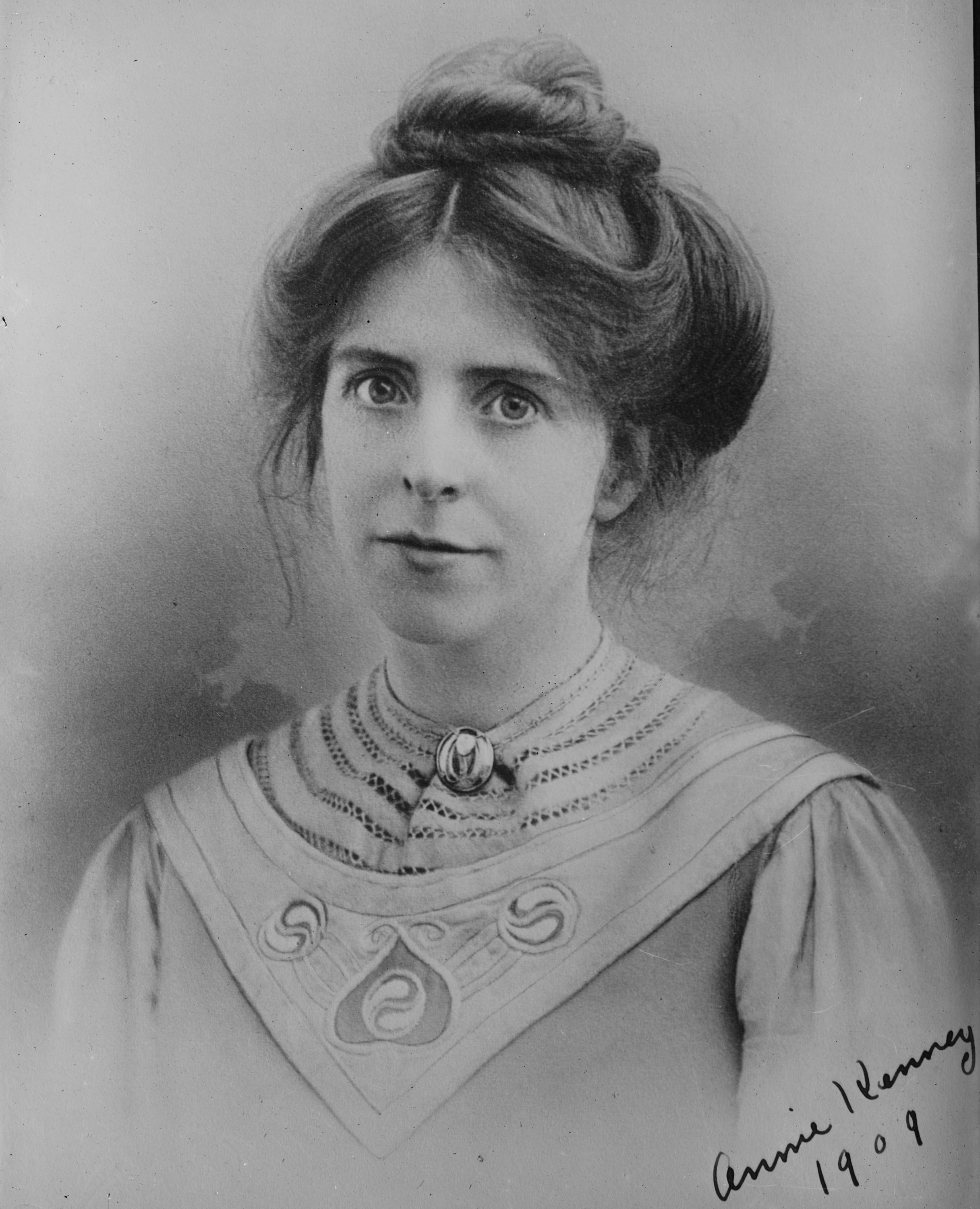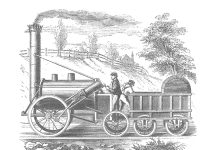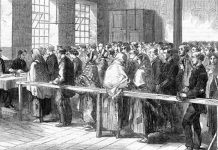The details of 1,300 historic suffragette arrest records are being published online today.
The treasure trove of information includes Emmeline and Sylvia Pankhurst, Dr Louise Garrett Anderson, Emily Wilding Davison and Saddleworth’s Annie Kenney and have been published as the film Suffragette is released.
Published by Ancestry, the world’s largest family history resource, Suffragettes Arrested, 1906-1914 collection reveals the names of more than 1,300 women and men detained as a result of their fight for equal voting rights at the turn of the 20th century.
Digitised from original records held at The National Archives in Kew, the list details the name of those arrested for the cause, along with the places and number of times they were arrested. The collection sheds light on the extent of the widespread oppression faced by women involved in the suffrage movement and records the detention of some notable figurehead female activists, including:
Emmeline Pankhurst – The leader of the British suffragette movement, Pankhurst was arrested multiple times and appears in the collection alongside both her daughters. As Founder of the Woman’s Social and Political Union (WSPU), Pankhurst was sentenced to repeated stretches in prison as a result of her militant activity. She also encouraged other political prisoners to strike against appalling prison conditions by refusing to eat and
Annie Kenney – One of 13 children, Saddleworth born Kenney become a leading figure in the WSPU and was among only a handful of working-class women in the so-called inner suffragette circle. Arrested 13 times in total (six of which are recorded in the collection) she was well known to the press after repeatedly heckling key political figures including Winston Churchill, refusing to pay her jail fines and refusing food in jail, forcing guards to force feed her on several occasions.
Also included in the collection are the names of more than one hundred of the lesser-known male supporters of the suffrage movement, such as Hugh Arthur Franklin, who was arrested five times from 1910-13 for crimes including an attempted attack on then-Home Secretary Winston Churchill and setting fire to an empty railway carriage. Franklin was the first person to be released under the Prisoners (Temporary Discharge for Ill Health) Act of 1913, also known as the “Cat and Mouse Act” – that allowed suffragettes becoming ill from hunger strikes to be released, only to be re-imprisoned when they recovered.
The suffrage movement attempted to harness government attention through democratic means such as lobbying MPs and non-violent protests. However, some used more militant tactics including arson, vandalism and violence against the police.
Irrespective of tactics, all those listed in the collection were united in the opinion that women should be given a voice in national politics. The records are also of significance to anybody looking to determine the location of an activist ancestor and track their subsequent fight for equal voting rights.
Morpeth resident Richard Tolson, who located his ancestor Catherine in the collection. Arrested in Manchester in 1909, Catherine and four other females (including her sister Helen) broke into a budget demonstration in Manchester and smashed several windows. They were arrested and sent to Strangeways prison. Newspaper reports at the time noted how, “the women made no secret of their intention to resist the rules of prison in every possible way.
Talking about his discovery, Richard comments: “It’s been fascinating to learn that one of my relatives was at the helm of a movement that helped changed the face of the British voting system. Along with her sister Helen, Catherine was prepared to go to prison to ensure that women were treated equally. She even received a hunger strike medals from the Women’s Social and Political Union after refusing food as a means of protest. As a man living in Britain in 2015, I’m very proud to have uncovered such brave and influential women in my family tree.”
Miriam Silverman, Senior UK Content Manager from Ancestry comments: “The actions of the women contained in this collection helped change the course of history forever, to the point which their roles have now been immortalised on the big screen. Now is the perfect time to get online and discover if any of your female relatives risked imprisonment fighting for equal voting rights – something we take for granted today.”
To search the England, Suffragettes Arrested, 1906-1914 and more than one billion other records visit: www.ancestry.co.uk.







